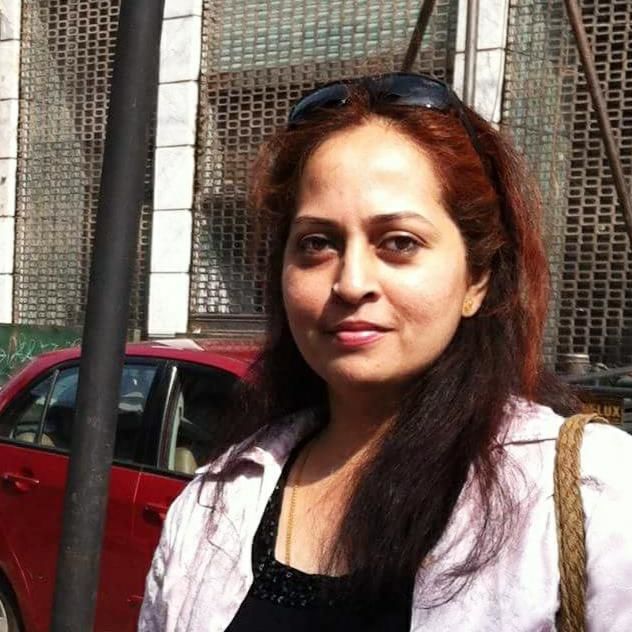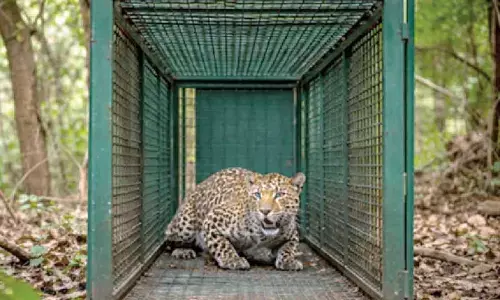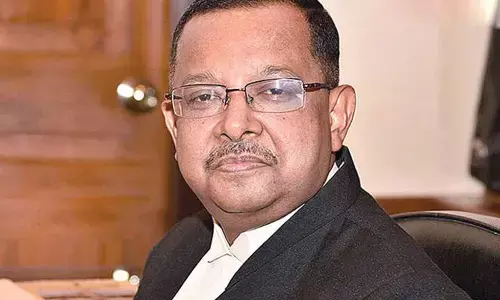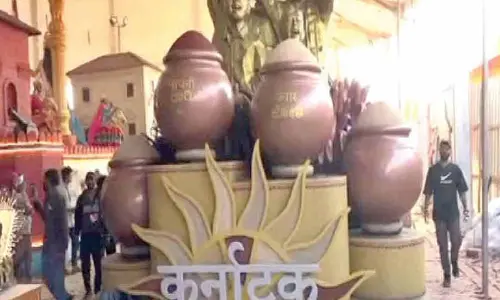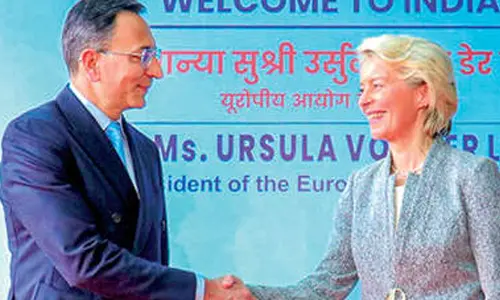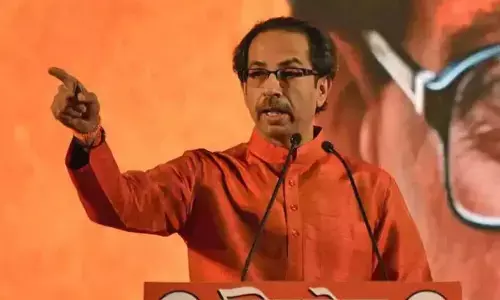G20 Summit opens a new avenue for millet sisters
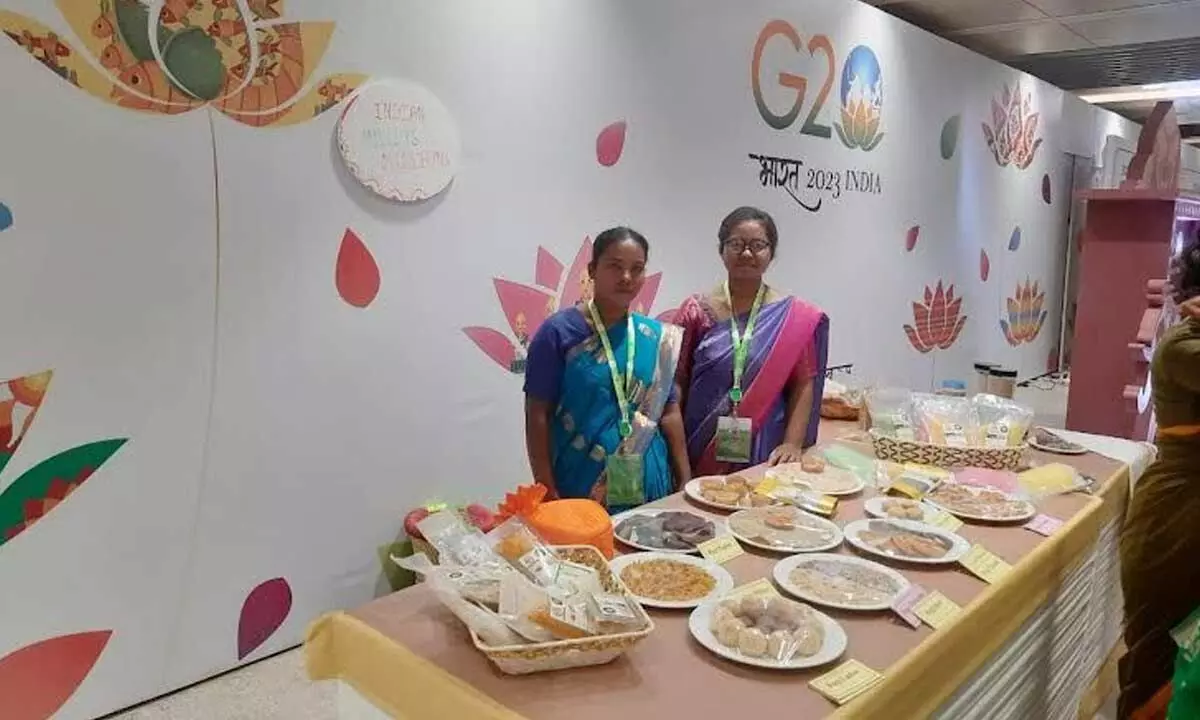
Millet sisters Ulli Jyothi and Rajeswari from LTP FPO, Chintapalli, exhibited their millet-based products at a stall at the G20 Summit held in New Delhi
- Lay emphasis on organically grown produce
- Provides them a rare opportunity to meet various millet farmers who came from various States
- The millet sisters say that the platform aided in exchanging the best practices
Visakhapatnam: The maiden trip to New Delhi to take part in the recently-concluded G20 Summit unfurled a new platform for millet sisters Ulli Jyothi and Rajeswari from a tribal hamlet to explore.
Associated with Lambasingi Tribal Products (LTP) Farmer Producer Organisation (FPO), they headed to New Delhi a few days back with the support of ICAR-Indian Institute of Millets Research and Sarada Valley Development Samithi to showcase organically-grown millets in the resource-rich region of Chintapalli mandal of Alluri Sitharama Raju district and share best practices.
Besides exhibiting ‘chiru dhanyalu’ in the millet-centred exhibition at the summit that highlighted millet live cooking, start-ups promoting millets and millet rangoli, Jyothi and Rajeswari say that they had an opportunity to share best practices and adopt effective techniques followed by millet farmers in various States.
“Along with millets, a host of value-added products such as millet cookies, assorted flour and instant upma mix that we displayed at the exhibition were sold out in a jiffy. We now have to prepare a set of flour and ready-to-eat millet-based food for the fresh order we booked in Delhi,” they share with The Hans India.
Both Jyothi and Rajeswari cultivate a host of organic millets, including foxtail, kodo, little and barnyard millets, in five acres of land in Chintapalli along with other millet sisters. In addition, they make millet-based value added products such as cookies, laddus, ready-to-use flours and other kitchen supplies at the food processing unit in the mandal.
With the United Nations declaring 2023 as the ‘International Year of Millets’, Jyothi says that their participation in the two-day-long G20 Summit reflected the growing demand for millets not just in India but across the world. “It is amazing to know that a farmer from Madhya Pradesh grows 130 varieties of millets. We can bring some of the seeds and cultivate them on an experimental basis,” suggests Jyothi, a B.Sc (Chemistry) graduate, who is now into full-fledged millet farming.
Belonging to Madigunta village of Chintapalli mandal, Rajeswari studied only till Class V. But her expertise in farming appears to be immense. “Many tribal hamlets are conducive for traditional crops. By adopting scientific farming techniques and incorporating technology, farmers can do wonders in the field of sustainable agriculture,” she recommends.
Stressing on the need to grow indigenous crops, Jyothi opines, “From farm to plate, farmers should focus on producing safe food. It is imperative how well we apply the knowledge gained and contribute to society through organic practices.”

